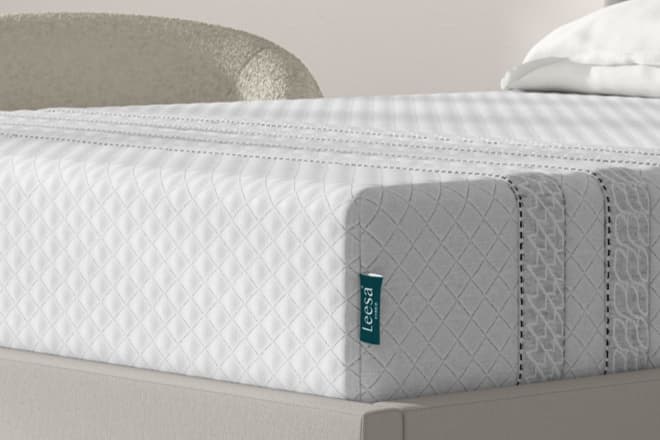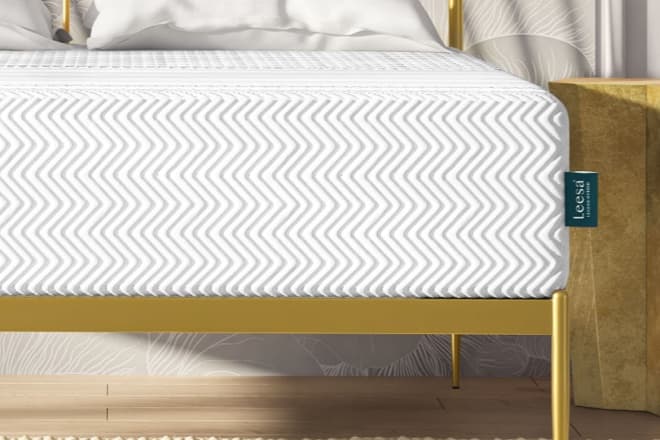Here’s a fun sleep fact: did you know that we spend one-third of our lives sleeping?
Sleep recharges our bodies, boosts our immune systems, and lets our hearts rest. Sleep also helps your brain sort out everything it's been processing throughout the day, which enhances mental health and consolidates memories.
But for every proven fact, there’s a slew of myths about how, why, and when we sleep that need to be cleared up. Let's find the facts in the fiction and learn something new about something every single person on Earth does every day.
Sleep Myth #1: Adults Need Less Than 6 Hours of Sleep Every Night
Presidents and busy executives often brag about needing only four or five hours of sleep at night, saying that it can help them be more productive.
But while you might be able to function with only a few hours of sleep, you won't be operating at peak levels.
Chronically insufficient or low-quality sleep leads to long-term sleep deprivation, and that opens the door to a myriad of health problems. Scientists and doctors have linked sleep deprivation to high blood pressure, diabetes, obesity or weight gain, depression, cardiovascular disease, and kidney disease.
So re-think your schedule. You might feel more productive in the short term (and that’s probably because you have more hours to work) but for long-term health, six hours of sleep might not be enough.
Sleep Fact: Adults need 7 to 9 hours of sleep per night
It's a scientific fact: adults need between 7 to 9 hours of sleep each night to be healthy and well-rested.
Without adequate sleep, both your body and brain functions start to deteriorate because your body needs time to heal and repair.
Not getting enough sleep can have the same effect as intoxication! When an adult goes without sleep for 24 hours, they will begin to function as if they have a blood alcohol level of 0.10—this is above the legal driving limit, which is 0.08 in most U.S. states.
Sleep Myth #2: As Long as you Get Enough Sleep, It Doesn't Matter When you Go to Bed
This is an incorrect assumption. The body is intricate and depends on quality sleep for it to function optimally. Having a regular bedtime or sleep schedule is key to getting your best night's rest . It's all about practicing good sleep hygiene.
Sleep fact: Circadian rhythm is important for sleep quality
Circadian rhythm is like an internal clock that tells your body when it's time to be awake and when it's time to sleep. It controls many of your body's functions, like digestion and body temperature, and is influenced by things like sunlight and darkness.
As the sun goes down, your body releases melatonin (the sleep hormone), which makes you fall asleep and stay alseep. And by sleeping as much as you can during the hours of darkness, you can align your internal clock with your environment and improve the quality of your sleep.
Sleep Myth #3: Napping Makes Up for Insufficient Sleep at Night
Let's say you couldn't fall asleep last night, and you only got four hours of sleep. "It's ok," you rationalize. "I'll take a nap during my lunch hour."
Sounds good, but a nap can't replace the healthy deep sleep your body needs.
Sleep fact: A nap isn't a substitute for quality sleep at night
If you're a first responder or night-shift worker, a half-hour nap can definitely help maintain alertness. However, naps won’t give you the same rejuvenating feeling that a good night’s rest will. This is because you don’t go into a deep REM sleep until you’re about 2-3 hours into your night (usually between 12-1 a.m).
REM sleep is a stage of sleep characterized by rapid eye movements, muscle paralysis, increased brain activity, and vivid dreaming. It plays a crucial role in memory consolidation, learning, and emotional regulation.
Disruption of this stage can lead to sleep-related disorders such as insomnia and sleep apnea.
Instead of sporadic napping throughout the day, humans are supposed to have an average of 7-9 hours of sleep every night to ensure proper rest and restoration for the next day.

Sleep Myth #4: Staying in Bed Will Help You Fall Asleep… Eventually
About one in three adults experience symptoms of insomnia, which makes going to sleep difficult. If you have trouble falling asleep, you probably know that tossing and turning isn't exactly pleasant.
Despite this, many people believe that staying in bed will help them fall asleep faster.
Here's another myth to bust.
Sleep fact: If you can't fall asleep in 20 minutes, sleep specialists advise getting out of bed.
As the minutes tick by, a would-be sleeper often begins to get sleep anxiety, feeling the pressure to fall asleep as quickly as possible. As anxiety increases, the heart rate rises, and the body starts to produce the stress hormone cortisol, which can negatively impact any efforts to get some sleep.
That's the rationale behind suggesting to actually get up for a while. Don't turn on your television, phone, or tablet, though. Instead, keep the room dimly lit and do something relaxing, like mindfulness meditation, reading a book, or listening to calming music.
The same goes for intermittent insomnia—waking frequently in the middle of the night and then having trouble going back to sleep. If you can't get back to sleep, get up for a while until you start to feel drowsy.
Sleep Myth #5: Couples Always Benefit from Sleeping in Same Bed
Sure, it's cozy and intimate to sleep together. But if your partner snores, has sleep apnea, sleeps at a different temperature than you, likes a different mattress firmness, or suffers from post-traumatic stress disorder (PTSD), that's not conducive to good sleep.
Sleep fact: 1 in 4 married couples sleep in separate beds
25% of married couples choose to sleep in separate beds. Many of them report that doing so saved their marriage. There's no shame in not sharing a bed. In fact, prior to the 1930s it was commonplace to have a separate bed or room away from your partner.
But if you're dead set against sleeping separately, here are a few solutions:
- Use separate blankets or individual duvets so that you aren’t fighting over the covers.
- Get your partner nose strips or find comfortable ear plugs so that snoring can no longer affect your sleep.
- Wear a silk eye mask so that light from your partner’s phone/ other activities don’t disrupt your bedtime.
Find a bed that’s in the middle of both your sleep preferences.
By getting a better night's sleep, every night, couples can improve intimacy, communication, and overall health.
Sleep Myth #6: Alcohol Will Help You Sleep
Many people have subscribed to the idea that a glass or two of their favorite alcoholic beverage before bed can help them sleep better. This is based on the fact that it makes them fall asleep faster
However, alcohol before bed can actually disrupt your sleep quality, which then leads to morning drowsiness and other side effects.
Sleep fact: Alcohol consumption before bed negatively affects your sleep quality
Alcohol suppresses rapid eye movement (REM) sleep, which is important for cognitive functioning and emotional regulation. It also increases the number of awakenings during the night and can trigger things like snoring, sleepwalking, and sleeptalking–leading to poorer sleep quality overall.
Additionally, alcohol can relax your soft palate and upper airway, making it more difficult to breathe. For those with sleep apnea especially, it’s advised that you stop drinking at least two hours before going to sleep.
Instead of using alcohol to make you drowsy, try the 4-7-8 breathing technique. It involves inhaling for 4 seconds, holding your breath for 7 seconds, and exhaling for 8 seconds.
This technique can help you relax and calm your body and mind, which can facilitate the onset of sleep. By focusing on your breath, you can also divert your attention from racing thoughts and promote a sense of mindfulness and relaxation conducive to sleep.
Sleep Myth #7: It's Best to Sleep in a Warm Bedroom
That's an easy idea to buy into in the dead of winter, but a warm bedroom can actually disrupt your sleep, especially that all-important REM sleep.
As mentioned before, temperature regulation is controlled by your circadian rhythm and our core temperature drops about two hours before we fall asleep. This cooler body temperature is meant to conserve energy for use in other areas of the body.
When your bedroom temperature is too high, it can signal to your body that it’s not ready to go to sleep or that it’s time to wake up.
Sleep fact: A cool environment promotes quality deep sleep
Sleep experts say that dropping your bedroom's temperature to between 60 and 67 degrees Fahrenheit at night can help you fall asleep faster and stay asleep.
If you still find yourself waking up and feeling too hot, it might be due to your mattress. Some mattresses don’t have proper ventilation and can cause night sweats and discomfort.
Switch to a mattress that has a cool, ventilated foam layer, like the Leesa Sapira Hybrid, and leave those night sweats in the past.
Have the Best Sleep of Your Life With Leesa
Sleep is critical for most physical and mental functions, which is why not getting enough of it can be detrimental to your health.
Ensure that your nighttime routine is conducive to high-quality sleep and that your sleep sanctuary is properly furnished so that you can wake up every morning feeling your best. Browse Leesa's custom-made foam or hybrid mattresses and see how you can enhance your sleep today.




